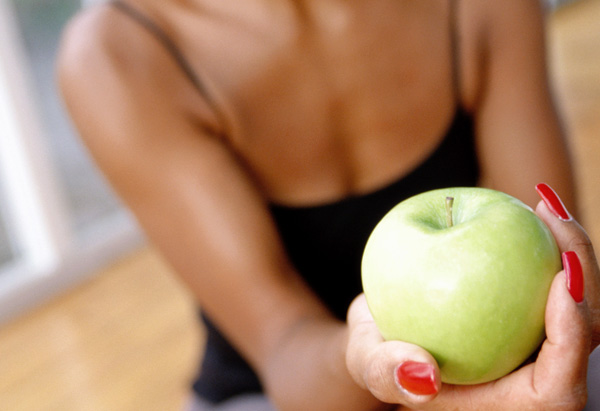
The 3 Things Nobody Tells You About Aging
"Yes, I know," you might say, and you might also suppress a little shiver and then go about your business.
Then suppose I say, "There's a bat in your hair. And you can't get him out." That's the way a lot of us feel about aging, at least in the beginning. Ask any cosmetic surgeon.
But when the panic finally subsides, there is also a sense of sorrow. We grieve over our former selves. We stare at photos from years ago, thinking, "I was so young." (And as any older person knows, every young person is beautiful. That skin! That forehead! Those arms!)
Most women will tell you about this experience: You're out buying toothpaste, and across the aisle you see a woman who looks haggard, even awful. And then you realize you're staring at yourself in some damned security mirror. You haven't had time to prepare yourself the way you do at home in the bathroom, to look at yourself with your face over your shoulder (my favorite method) so your neck won't horrify you yet again.
And then there are the little surprises, things that get left out of the handbook due to their relative unimportance. These are the paper cuts of aging; they are minor, yes, but they are annoying. And they hurt more than you'd think.
You take off your sexy black Anne Fontaine blouse, and there's white stuff all over it: body dandruff.
You go to put on your fashionable ballet flats, and they don't fit any more: Your feet have spread out.
There is something else that comes with aging, and that is the particular kind of loneliness it brings. Even if you live with other people, there comes a day of private reckoning when you see that you must rely upon yourself for your deepest needs. There is no Prince Charming. You are the princess and the prince.
So, yes, getting older brings things that are hard to deal with. But it also brings things we are blessed to have and that we could not have any other way.
You understand that time moves—and has always moved—in inverse proportion to your desire for it to slow down.
That's bittersweet, but the emphasis is on "sweet," because your appreciation of even a so-called boring afternoon increases. Thus it is that you are standing in a shaft of sunlight, peeling an apple, and everything becomes illuminated, inside and out, because you have finally learned to be in the moment. Also you have learned how to see the astonishing beauty in a cluster of apple seeds. And in food, in cooking, in feeding others.
You get over yourself.
You may come to understand that not only are your family and friends worthy of care and attention, the whole world is, because it turns out that the whole world is your family too. And if you embrace that concept, your compassion can grow like Jack's beanstalk. You can happily abandon your fantasies of being everlastingly young and rich and famous and understand that true wealth and beauty have nothing to do with money or good looks. Your legacy can be simple and clear: I was here, and I cared, and I showed it. Actually, that's not only simple and clear—it shines.
You can stop speaking in questions.
You know what I mean? That way of making everything up for debate? Even when what you're saying is—or should be—declarative? Often it's used by younger people who think that using questionese is somehow less offensive, more ingratiating, cuter than making a statement. But talking that way obscures the truth. It prevents you from saying what you really want, and it waters down what you really believe. When you accumulate enough years, you learn to say what you mean and mean what you say. You are willing to take the risk of being called a curmudgeon for speaking clearly and directly about what you want and deserve. And here's the thing: Usually, when you start respecting yourself enough to speak this way—unapologetically and matter-of-factly—others respect you too.
The truth is, aging can be your realest opportunity to decide how best to live. And the best incentive for getting you to do just that. Finally.
More on Aging Beautifully











